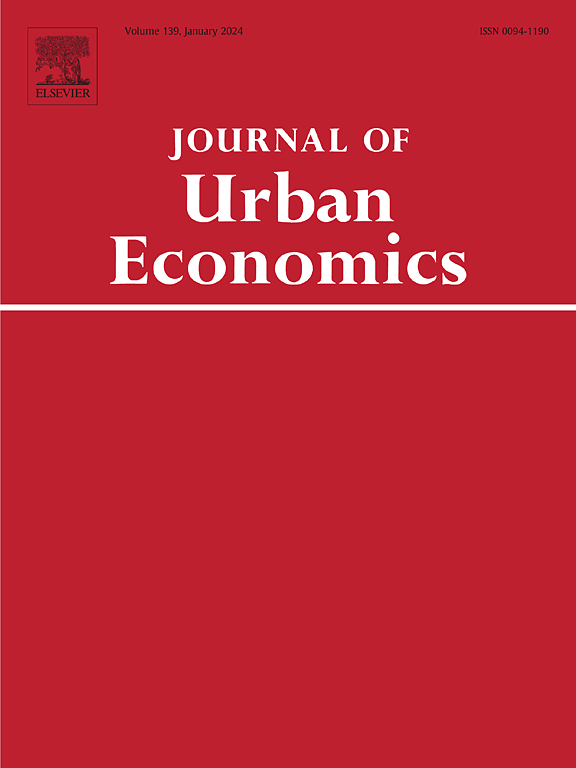房地产繁荣和逃避
IF 4.8
1区 经济学
Q1 ECONOMICS
引用次数: 0
摘要
本文研究了住房财富冲击对职场逃避的影响。我们使用信用卡交易的类型和实际时间戳来检测工作时间内与工作无关的行为。在房价上涨1个百分点之后,有工作的房主在利用工作时间满足个人需求的倾向上经历了每月3.8%的快速持续增长。在财富增幅较大、职业潜力较差或监控成本较高的行业中,这种震后反应更为明显。本文章由计算机程序翻译,如有差异,请以英文原文为准。
Housing booms and shirking
This paper studies the effect of housing wealth shocks on workplace shirking. We use the type and actual time stamps of credit card transactions to detect non-work-related behavior during work hours. After a one-percentage-point increase in house prices, employed homeowners experienced a fast and persistent increase by 3.8 % per month in their propensity to use work hours to attend to personal needs. The post-shock response is more pronounced among homeowners with a greater wealth increase, with poorer career potential, or for occupations with higher monitoring costs.
求助全文
通过发布文献求助,成功后即可免费获取论文全文。
去求助
来源期刊

Journal of Urban Economics
Multiple-
CiteScore
10.60
自引率
4.80%
发文量
64
期刊介绍:
The Journal of Urban Economics provides a focal point for the publication of research papers in the rapidly expanding field of urban economics. It publishes papers of great scholarly merit on a wide range of topics and employing a wide range of approaches to urban economics. The Journal welcomes papers that are theoretical or empirical, positive or normative. Although the Journal is not intended to be multidisciplinary, papers by noneconomists are welcome if they are of interest to economists. Brief Notes are also published if they lie within the purview of the Journal and if they contain new information, comment on published work, or new theoretical suggestions.
 求助内容:
求助内容: 应助结果提醒方式:
应助结果提醒方式:


